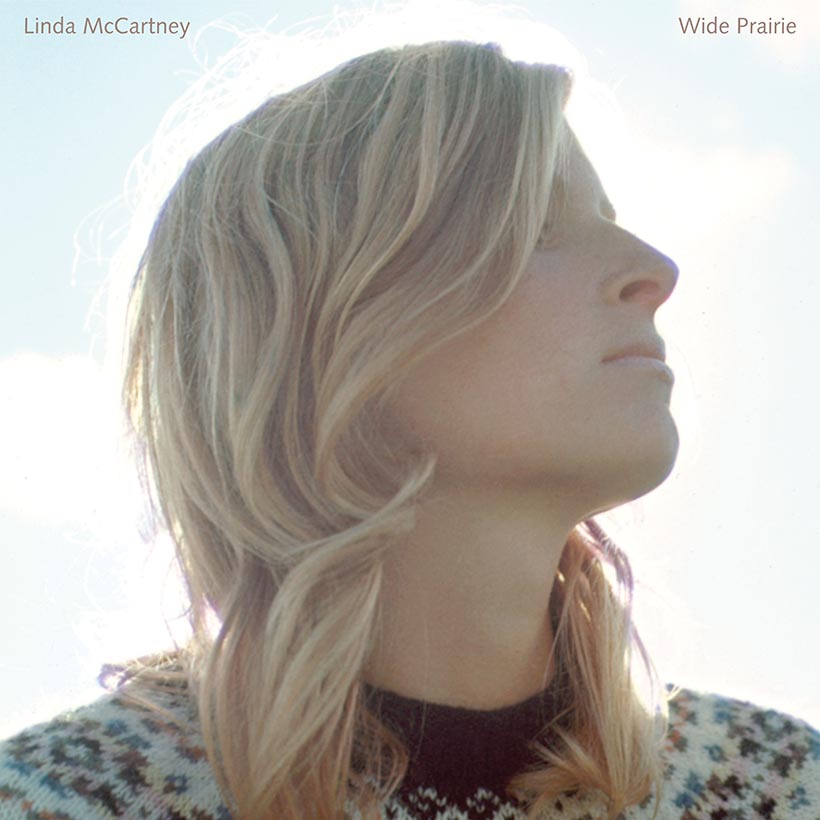The charming “Seaside Woman,” the 1977 single that became the centerpiece of Linda McCartney’s posthumous solo album, Wide Prairie, was written by the singer during a holiday in Jamaica in 1971, after Paul McCartney urged her to “get out and write a song.” It followed a difficult time when the couple were contesting a lawsuit about whether she had actually been involved in writing “Another Day,” The Beatles star’s first song after going solo. “‘Seaside Woman’ was very reggae-inspired,” she said later. “That’s when ATV was suing us, saying I was incapable of writing.”
“Seaside Woman,” Linda McCartney’s first solo composition, was later turned by the singer and Oscar Grillo into an animated short that went on to win the Cannes Film Festival’s prestigious Palme D’Or. Issued as a single in 1977, it is one of the highlights of 1998’s Wide Prairie, the posthumous compilation album that was released following her death from breast cancer on April 17, 1998, at the age of 56. The 16 songs on the album, which were recorded between 1972 and 1998, are a poignant reminder of the singer, keyboard player, photographer, cook, and animal rights activist.
Linda’s shyness
Paul McCartney said the idea for the album was first mooted before his wife’s illness, following an encouraging letter from a young fan who wanted to hear a collection of her songs. In an interview with musician and family friend Chrissie Hynde, he opened up about the album and Linda’s reticence to release her music.
“She was shy to release it all,” said McCartney, who had married Linda Louise Eastman in 1969. “But this letter from this fan made her think that maybe she should put an album together. So the last couple of years we spent finding all the old tapes, looking at songs that didn’t have lyrics and – because we often had to make these two-hour trips up to London for her treatment – we’d use that time. We’d get a cassette of one of the melodies she’d written, and we’d write the words on these trips to London.
“On such journeys we wrote the words to ‘Appaloosa,’ ‘I Got Up,’ and ‘The Light Comes From Within.’ We’d have a good laugh and forget that she was going up for treatment. It kept us both positive. Before we went out to Arizona, about a month before she died, we were putting the finishing touches to the album.”
The album
The touching “The Light Comes From Within” was the last song Linda sang and recorded, and featured her 19-year-old son James McCartney on electric and acoustic guitar. Her work with Wings is represented through tracks such as the humorous “Cook Of The House.” The song, written by the passionate vegetarian, first appeared on the 1976 album Wings At The Speed Of Sound. The touching “Endless Days” demonstrated husband McCartney’s deft skills as a producer.
“The White Coated Man,” which reflects Linda’s commitment to fighting animal abuse, is helped by some vibrant electric guitar from Robbie McIntosh of The Pretenders. The late writer Carla Lane, the woman behind British television classics such as The Liver Birds and Butterflies, was also passionate about animals. She co-wrote “The White Coated Man” and worked with McCartney on the song “Cow,” which deals with the final days of an animal under sentence of death.
There is a nostalgic feel to the album, too. Wide Prairie features covers of songs which held strong childhood memories for the singer, such as “Poison Ivy” – a Jerry Leiber and Mike Stoller classic that was a hit for The Coasters in 1959. She also covered “Sugartime” and the romantic ballad “Mr. Sandman,” which is given a reggae makeover.
Putting the album together
McCartney said that putting the final album together following his wife’s death was particularly tough, especially as the engineer Geoff Emerick, a friend and collaborator from his Beatles days, had also recently lost his wife to cancer. The pair called the studio time “tears and laughter” sessions and McCartney admitted he was frequently “crying into the console.”
As a keyboard player and backing vocalist for Wings, Linda McCartney’s musical efforts were sometimes overlooked, but Wide Prairie serves as a testament to her abilities. “It was a very uplifting album to do,” said Paul McCartney. “When we finally got the whole album together, we thought she’d be damn proud of this. And she should be, too, because her personality comes over.”
Wide Prairie has been reissued on vinyl and can be bought here.



